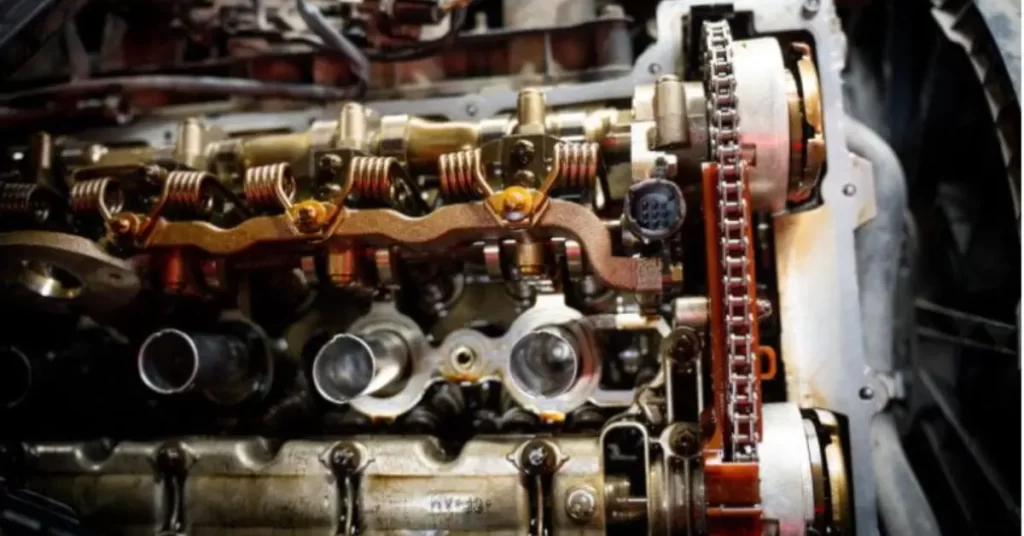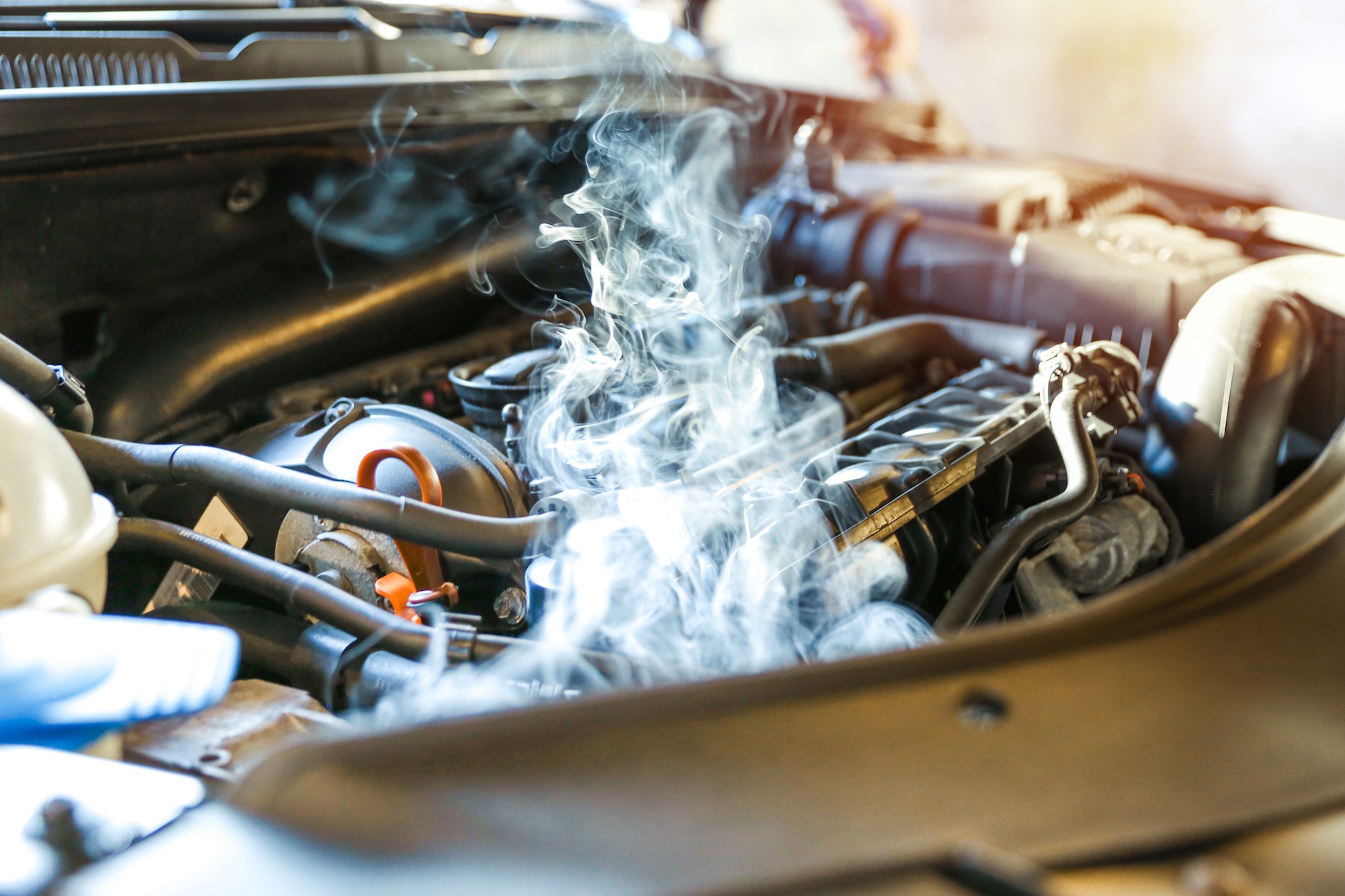When your car’s temperature gauge suddenly spikes into the red zone or you see steam coming from under the hood, it’s a clear sign: your engine is overheating. This is one of the most common and serious issues drivers face, and ignoring it can lead to costly engine damage.
In this detailed guide, we’ll explore the main causes of engine overheating, how to identify the warning signs, and what you can do to prevent it from happening.
🚗 What Is Engine Overheating?
Engine overheating happens when the engine’s temperature goes beyond the normal operating range — typically above 220–230°F (104–110°C). This can severely damage engine parts like the head gasket, pistons, and cylinder walls if not addressed quickly.
⚠️ Warning Signs of Engine Overheating

Before diving into the causes, here are some common symptoms to look out for:
- Temperature gauge rising above normal
- Steam or smoke from the hood
- Sweet smell (coolant leak) or burnt oil smell
- Engine knocking or pinging sounds
- Loss of power or stalling
- Warning lights on the dashboard (temperature or check engine)
🔍 Top Causes of Engine Overheating
Let’s take a look at the most common reasons your engine might be overheating:
1. ❌ Low Coolant Levels
Coolant (antifreeze) is essential to keep engine temperature in check. If it’s low due to leaks or evaporation, the engine can’t cool down properly.
Fix: Regularly check and top up coolant. Look for leaks under the car or around the radiator and hoses.
2. ❌ Faulty Thermostat
The thermostat regulates coolant flow. If it gets stuck closed, coolant won’t circulate, and the engine overheats quickly.
Fix: Replace a faulty thermostat immediately. It’s a small, inexpensive part but critical for engine cooling.
3. ❌ Radiator Problems
A clogged, leaking, or damaged radiator can’t release heat effectively. This can cause the coolant to overheat and the engine to follow.
Fix: Inspect the radiator for blockages, corrosion, or leaks. Flush it periodically to remove debris.
4. ❌ Water Pump Failure
The water pump keeps the coolant moving throughout the engine. If it fails, coolant circulation stops, leading to rapid overheating.
Fix: Replace a faulty water pump. Check for leaks or strange whining noises — both are signs of pump issues.
5. ❌ Coolant Hose Leaks or Blockages
Hoses carry coolant to and from the engine. If a hose is leaking, clogged, or collapsed, it disrupts the cooling system.
Fix: Regularly inspect hoses for cracks, bulges, or blockages and replace as needed.
6. ❌ Broken Cooling Fan
Cooling fans help the radiator cool down the engine, especially in traffic. A damaged fan or failed fan motor can cause overheating, especially at low speeds.
Fix: Check the fan and motor. Replace any burnt-out fuses or faulty relays that affect fan operation.
7. ❌ Blown Head Gasket
A blown head gasket can let coolant enter the engine cylinders, reducing coolant levels and causing overheating.
Fix: This is a serious repair. If you see white smoke from the exhaust or coolant in the oil, get professional help immediately.
8. ❌ Air in the Cooling System
Trapped air can prevent coolant from flowing properly, causing hot spots inside the engine.
Fix: Bleed the cooling system to remove air bubbles after a coolant change or repair.
9. ❌ Using the Wrong Coolant
Different engines require specific types of coolant. Using the wrong coolant type can reduce cooling efficiency and lead to overheating.
Fix: Always use the coolant recommended by the vehicle manufacturer.
10. ❌ Towing or Heavy Loads in Hot Weather
Extra weight or towing increases engine load, and on a hot day, this can push your engine beyond its cooling capacity.
Fix: Avoid heavy loads in extreme heat, and ensure your cooling system is in top condition before long trips.
🛠️ How to Prevent Engine Overheating

Here are simple tips to help avoid overheating:
- ✅ Check coolant levels regularly
- ✅ Inspect hoses, belts, and the radiator for wear
- ✅ Keep the radiator cap tightly sealed
- ✅ Don’t ignore warning lights or temperature spikes
- ✅ Service your cooling system every 1–2 years
- ✅ Avoid driving with a low coolant reservoir
- ✅ Watch your driving habits in extreme heat or when towing
🧯 What to Do If Your Engine Overheats
- Pull over safely and turn off the engine.
- Don’t open the radiator cap immediately — wait 15–30 minutes until the engine cools down.
- Check coolant level once it’s safe.
- Call for roadside assistance if needed.
- Visit a mechanic ASAP to diagnose the cause.
📊 Engine Overheating: Quick Summary
| Cause | Severity | Solution |
| Low Coolant | Common | Top up coolant, fix leaks |
| Faulty Thermostat | Moderate | Replace thermostat |
| Radiator Issues | High | Clean or replace radiator |
| Water Pump Failure | High | Replace pump |
| Cooling Fan Not Working | Moderate | Check fan motor or fuse |
| Blown Head Gasket | Severe | Major engine repair |
| Air in Coolant | Moderate | Bleed cooling system |
FAQ’s
1. What are the first signs that my engine is overheating?
Common signs include a rising temperature gauge, steam from the hood, engine warning lights, a sweet smell (coolant leak), or unusual engine noises like knocking or pinging.
2. Can low engine oil cause overheating?
Yes, low or dirty engine oil reduces lubrication and increases friction, which can cause engine components to overheat and wear out faster.
3. How often should I check my coolant to prevent overheating?
You should check coolant levels at least once a month or before long trips. Also, inspect for leaks and ensure the coolant is clean and at the recommended level.
4. Can I still drive my car if it’s overheating?
No, continuing to drive an overheating car can cause severe engine damage. It’s best to pull over, turn off the engine, and let it cool before checking the issue or calling for help.
5. Why does my car overheat only in traffic or at idle?
This usually indicates a problem with the cooling fan or thermostat. At low speeds, the radiator fan plays a key role in cooling the engine since there is less natural airflow.
Final Thoughts
Engine overheating is not just inconvenient — it can lead to major engine damage if ignored. Understanding the common causes and knowing how to prevent them can save you from expensive repairs and dangerous breakdowns. By maintaining your cooling system and paying attention to warning signs, you can keep your engine running cool and reliable — even in the hottest conditions.




